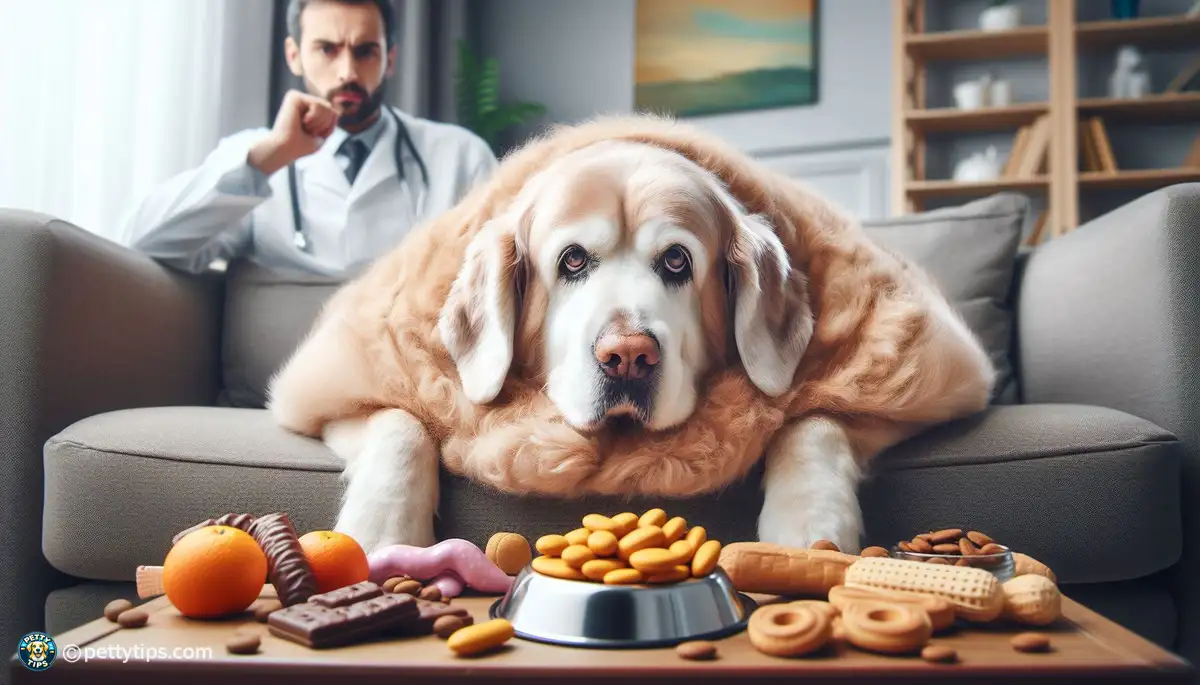
Managing Arthritis in Aging Dogs and Cats
Ralph Gurrola - Sep 28, 2024 - 7 min read


Senior pet obesity is a growing concern among pet owners and veterinarians alike. As pets age, their metabolism slows down, and they become more prone to weight gain. Obesity is defined as an excessive accumulation of body fat, often caused by overfeeding and lack of physical activity. In senior pets, obesity can lead to various health issues such as arthritis, diabetes, and heart disease.
Several factors contribute to obesity in senior pets. One common cause is overfeeding or feeding high-calorie diets without adjusting for the decrease in activity levels that often accompany aging. Lack of regular exercise also plays a significant role. Additionally, certain medical conditions, such as hypothyroidism or Cushing's disease, can contribute to weight gain in senior pets.
It's essential for pet owners to recognize the signs of obesity in their senior pets. These signs may include difficulty walking or climbing stairs, excessive panting, and reluctance to engage in physical activity. Another indicator is the inability to feel the ribs or spine easily when petting your senior pet.
Obesity in senior pets can lead to several serious health risks. These include an increased risk of arthritis and joint pain due to excess weight putting strain on joints. Senior obese pets are also more prone to diabetes mellitus, which can require lifelong management with insulin. Heart disease and respiratory issues are additional risks, as excess fat can put pressure on the heart and lungs, leading to decreased quality of life for senior pets.
Diet plays a crucial role in the development of obesity in senior pets. Overfeeding, feeding table scraps, or offering high-calorie treats frequently can lead to weight gain over time. Senior pets may also have specific dietary requirements that change as they age, necessitating adjustments in their feeding regimen to prevent obesity.
As pets age, they tend to become less active. Senior pets may not engage in as much physical activity as they did when they were younger, leading to a decrease in calorie expenditure. Without regular exercise, senior pets are more likely to gain weight, especially if their caloric intake remains unchanged.
Metabolic changes occur as pets age, affecting how their bodies process and store energy. Senior pets may have a slower metabolism, making it easier for them to gain weight if their diet and exercise routine are not adjusted accordingly. Hormonal imbalances, such as thyroid issues, can also contribute to metabolic changes that predispose senior pets to obesity.
Some breeds and individual pets may be genetically predisposed to obesity. This predisposition can be exacerbated in senior pets if proper dietary and exercise habits are not maintained throughout their lives. Understanding your pet's breed characteristics and potential health risks can help in preventing obesity as they age.
Obesity in senior pets places additional strain on their joints, exacerbating arthritis and other joint issues. The excess weight can lead to inflammation and pain, reducing mobility and quality of life for senior pets. managing weight through diet and exercise can help alleviate these symptoms and improve joint health.
Senior obese pets are at an increased risk of developing diabetes mellitus. This condition results from insulin resistance or insufficient insulin production, leading to elevated blood sugar levels. Diabetes requires lifelong management with insulin injections and dietary modifications to regulate blood glucose levels and prevent complications.
Excess body fat in senior pets can strain the heart and cardiovascular system, increasing the risk of hypertension, heart disease, and other circulatory issues. Maintaining a healthy weight through balanced nutrition and regular exercise can reduce the risk of cardiovascular disease and improve overall heart health in senior pets.
Obesity can lead to respiratory complications in senior pets, particularly if excess fat accumulates around the chest and abdomen, restricting lung expansion. This can result in difficulty breathing, especially during physical activity or when resting. Weight management strategies can help alleviate respiratory symptoms and improve breathing capacity in senior obese pets.
A balanced diet tailored to senior pets' nutritional needs is crucial for preventing obesity. Choose high-quality pet food formulated for senior pets, with appropriate protein, fat, and fiber content. Avoid overfeeding and limit treats to prevent excessive calorie intake. Consult your veterinarian for personalized dietary recommendations based on your senior pet's health status.
Encouraging regular exercise is essential for managing weight and promoting overall health in senior pets. Engage your pet in daily walks, play sessions, or low-impact activities that suit their age and physical condition. Gradually increase exercise intensity and duration as tolerated by your senior pet to maintain muscle tone and prevent weight gain.
Regular veterinary visits are crucial for monitoring your senior pet's weight, body condition, and overall health. Your veterinarian can assess your pet's weight management progress, screen for obesity-related health issues, and provide guidance on adjusting diet and exercise routines as needed. Early intervention can help prevent obesity-related complications and improve your senior pet's quality of life.
Provide behavioral enrichment and a stimulating environment for your senior pet to prevent boredom and emotional eating. interactive toys, puzzle feeders, and mental stimulation can help keep your pet active and engaged. Avoid overfeeding out of boredom or as a reward for behavior, and instead, offer praise, attention, or non-food rewards.
Senior pet obesity is a significant health concern that requires proactive management and preventive measures. By understanding the causes, recognizing the signs, and implementing strategies to prevent and manage obesity, pet owners can help their senior pets live longer, healthier lives. Through a balanced diet, regular exercise, veterinary monitoring, and environmental enrichment, senior pets can maintain a healthy weight and enjoy an active lifestyle well into their golden years. Taking a proactive approach to senior pet obesity ensures that your beloved companion remains happy, healthy, and thriving for years to come.